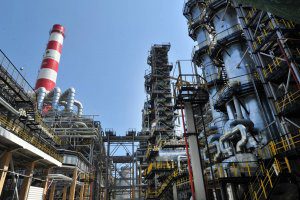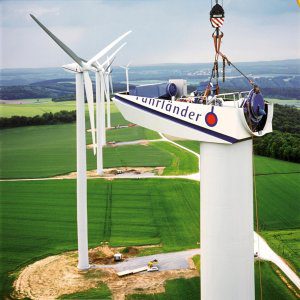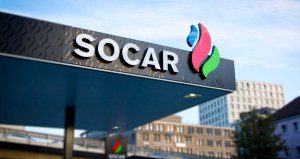
KYIV. Jan 30 (Interfax-Ukraine) – Ukrainian IT team dcua in 2016 won first place in the CTFtime ranking among specialists able to determine the degree of system protection against attacks and build it, the press service of Sikorsky Kyiv Polytechnic Institute has said.
According to the rating, posted on the website of CTFtime, Ukrainian IT specialists from the institute drew ahead of more than 12,000 teams from around the world.
Ukrainian team dcua, created in 2012, is led by research fellow from the institute Mykola Ilyin. Currently the team consists of 43 players.
Dcua has been in the top ten in the CTFtime rating for the past four years. In 2013 the team ranked fifth place, in 2014 and 2015 sixth.
The CTFtime rating is drawn up as a result of participation of teams during the year in international competitions in the field of information security. In 2016 it was based on the results of 70 competitions.
Capture the Flag (CTF) in the field of cyber security is a team competition for protection of information aimed at finding vulnerabilities in the system, determining the extent of its vulnerability and finding the ways to eliminate weaknesses.

KYIV. Jan 30 (Interfax-Ukraine) – The area of certified farmland under organic production in Ukraine could increase by 10% in 2017, to 450,000 hectares, according to the Organic Ukraine union of organic goods producers.
“The medium-term plan of the government’s priority actions, which is now at the stage of public discussion, envisages the increase in the area of organic farming land to 450,000 hectares by the end of 2017, i.e. by 10%,” reads a press release of the organization.
According to the Organic Federation of Ukraine, currently 410,550 ha of land in the country are occupied for organic farming. Compared with 2010, this figure increased by 35%.
The EU has 11 million hectares of certified land for organic farming, more than 270,000 farms are engaged in organic production.
Deputy Minister of Agricultural Policy and Food Olha Trofimtseva during the first international congress Organic Ukraine in Kyiv said in the last 5 years the number of operators in the Ukrainian organic market grew by 90%.
“The organic industry is one of the most dynamic. With 400,000 hectares of land under organic treatment, we could increase this figure by several times,” Minister of Agricultural Policy and Food Taras Kutoviy said.

KYIV. Jan 30 (Interfax-Ukraine) – PJSC Ukrnafta plans in 2017 to invest UAH 2.6 billion in stabilization of production, the press service of the company has said.
“In order to ensure the long-term stabilization of production and create conditions for its growth, Ukrnafta has to invest about UAH 2.6 billion per year. According to the calculations of the company, the effect of lower oil royalties will be about UAH 1.3 billion. The budget for 2017 includes an investment program in the amount of UAH 2.6 billion,” a statement reads.
Ukrnafta in 2016 reduced oil and gas condensate output by 9.2%, to 1.518 million tonnes, gas production by 13.4%, to 1.301 billion cubic meters. Production of liquefied natural gas decreased by 12.9%, to 134,000 tonnes.
Naftogaz Ukrainy owns a 50% plus one share stake in Ukrnafta, Privat Group holds about 42% of the shares.

KYIV. Jan 30 (Interfax-Ukraine) – ISD co-owner Oleh Mkrtchan and MP Maksym Yefimov (the Bloc of Petro Poroshenko faction) are the ultimate beneficiaries of Fuhrlander Windtechnology (Kramatorsk).
This is evidenced by the data posted in the unified state register of legal entities.
Fuhrlander Windtechnology is the only Ukrainian producer of modern wind turbines. It is engaged in construction of wind farms. The company produces turbines of 2 MW, 2.5 MW and 3 MW at the site of Kramatorsk Heavy Machine Tool Plant. During the period from 2010 to the present time Fuhrlander Windtechnology has built [using its own equipment] seven wind farms in Ukraine and one wind farm in Kazakhstan.
The company’s revenues in 2015 amounted to UAH 456.262 million, net loss stood at UAH 504.271 million.
Previously the partner of Fuhrlander Windtechnology was Germany’s FWT Energy, the developer and manufacturer of wind turbines. FWT Energy is experiencing serious financial problems. According to mass media reports, the company on January 21 filed an application for insolvency to the court of Montabaur. According to the publications, the FWT Energy business in 2015 suffered due to the failure of supplies of six sets of equipment for wind turbines to Ukraine and in 2016 the company began work in the markets of Russia and Belarus.

KYIV. Jan 30 (Interfax-Ukraine) – Azerbaijan’s SOCAR has expanded the chain of gas filling stations in Ukraine to 60 outlets, the company wrote on Facebook.
It announced the opening of its 60th station on Protasiv Yar Street in Kyiv.
Its 50th station opened in Mykolaiv in March 2015.
SOCAR’s chain covers Kyiv, Odesa, Mykolaiv, Lviv, Kharkiv, Rivne, Cherkasy, Dnipropetrovsk, Khmelnytsky, Zhytomyr and Poltava regions.
It also operates one bunkering tanker in Ukraine.